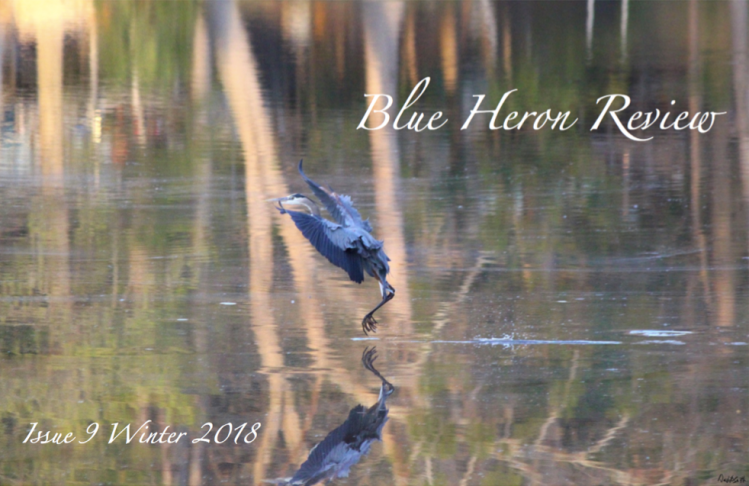
(Cover Art by David Seth Smith)
CONTRIBUTORS
Poets:
Richard Greene * Neil David Mitchell * Jessica Moser * Jonel Abellanosa * Erina Booker * Rosalie Sanara Petrouske * Nikolai Sebastian * Jan Bosman * Jenni Gribble * Robert Lee Brewer * Darren C Demaree * Katy Phillips * Alice Mills * Keith MacNider * Prerna Bakshi * Jeannie E Roberts * Nick Hale * Timothy Pettet * Neil Creighton * Steve Bucher * Ethel Mortenson Davis * Karen Warinsky * Faye Adams * Maryann Hurtt * Mary Jo Balistreri * Mary C Rowin * Kristina Mullenix * Victoria Lindsay * Erika Goodrich * Anne Anthony * Eileen Mattmann * Mark Danowsky * Diana Randolph * Nancy Jean Larson * Kai Coggin * Colleen June Glatzel * Paula Schulz * Jacqueline Martindale
Artists:
David Seth Smith (Cover Artist) * Kurt John Huebner * Jeannie E Roberts * Karen A VandenBos (Featured Photographer) * Devi S Laskar * Bobbie Lee Lovell * Kai Coggin * Anna May Shaffer
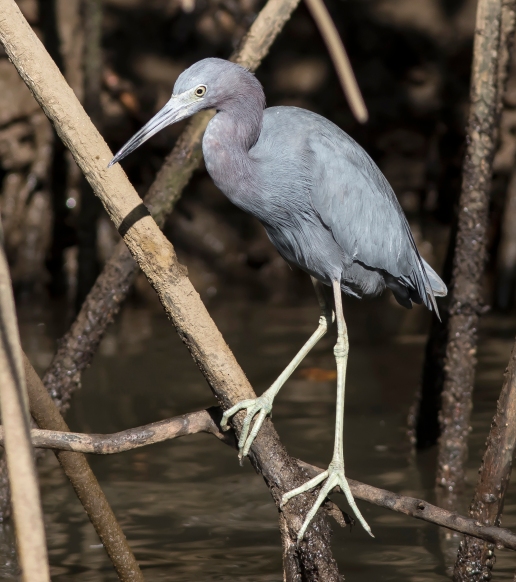
(artist credit: Kurt John Huebner)
RICHARD GREENE
I Saw a Heron Flying
It was cold when I opened the door
and a gauze of cloud covered the sky,
the sun a muted disk.
In the chill air, a bird call seemed to echo.
As I wondered at its strength and clarity
a large bird labored into view.
A goose I thought, without thinking,
but then,
too large,
and I saw the long legs trailing
and the crook’d neck at the prow.
A heron, I thought,
a great blue heron!
And the cold morning air
seemed less like the last breath of winter
than the first of newborn spring.
Richard Greene’s interest in poetry began with a children’s book his parents gave him when he was 8, and he began writing poetry in eighth grade (8, it seems, is his magic number), inspired by the opening lines of Longfellow’s “Evangeline” which he read in class, “This is the forest primeval. The murmuring pines and the hemlocks, / Bearded with moss and in garments green, indistinct in the twilight.” In college, he studied with Henry Rago, later editor of Poetry magazine, but after graduating wrote little during a 38-year career in international development, beginning to write intensively again as retirement approached. He has since written approximately 2,000 poems, but has done little about getting them published. He does, however, email a “Poem of the Week” to close to 200 people, and particularly likes that form of “publication” because of the feedback and interaction it engenders.
NEIL DAVID MITCHELL
Mediterranean (from this window)
All the while, balancing on the summit of a rolling, glittering meniscus,
biblical trawler boats curve, curl, cut perfect crescents,
round lazy tankers ghosting the hazy horizon.
A cruiser steals centre stage, lingering for applause,
while piston kayaks power walk,
and skiers, in their wake, slap and tap dance the surface.
A fisherman puffs and casts, connecting into
(waits to heave from)
waves which whirl and weave perpetual tremors,
till their unhurried worry lines dissolve to liquid dust
on shingle shorelines,
returning their rhythms to rest
in the journey to sand,
enticing, healing, feeding,
the water instinct from within.
Neil David Mitchell (Glasgow, Scotland) writes poetry, prose and music, and also balances the challenging and wonderful roles of being a High School English teacher, a husband and a father. (Not necessarily ranked in order of importance!) He has had his poetry published in the dVerse Anthology (Voices of Contemporary World Poetry) and is currently working on his debut novel, The Leavers and the Leftovers.
JESSICA MOSER
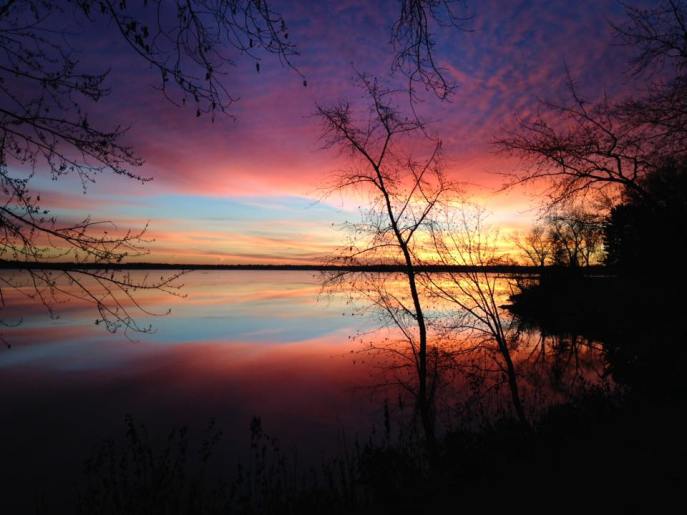
(artist credit: Jeannie E Roberts)
Nights Like These
I want to cook for you,
so you will forget
I have tasted sour.
I want you to
want me like heat,
rising in spirals,
waves warping vision for miles.
I want to cover your eyes with my palms,
murmur lullabies in your ears.
I want to blot out your memories
of when I came to bed smelling of smoke
with the sunrise.
I want to hang lights
to find you a safe path
and rub balm on your skin
where I have scratched you.
I have taken you for granted,
the way a telescope
brings all things close with a knob’s turn
when I should love you
as a ghost would wear skin,
as parched lips would receive water.
Jessica Moser was born and raised in New York City. After graduating from SUNY Albany and Hunter College, she has studied poetry at various venues around Manhattan. She lives in New York with her family.
JONEL ABELLANOSA
Tincture
Add three drops
of
your
tears
in the mandala’s eye
In three seconds
the paper will dry
The fire serpent
will wear your spine
and melt the stone
behind your brow,
your third wish
like a pelican
in the sky
Jonel Abellanosa resides in Cebu City, the Philippines. His poetry has appeared in numerous journals and anthologies including, Anglican Theological Review, Rattle, Poetry Kanto, Spirit Fire Review, Episteme Literary Journal, The McNeese Review, The Literary Hatchet, GNU Journal, and Pedestal Magazine. He has two chapbooks, Pictures of the Floating World (Kind of a Hurricane Press) and The Freeflowing All (Black Poppy Review). He is a Pushcart Prize nominee.
ERINA BOOKER
Night Bird
You sent me
a tawny frogmouth
ghostly-pale and still,
its presence dominant
on a lower branch
despite the garden’s size
it held a deep, encompassing
silence
impenetrable
yet profoundly
wise, and I,
silently and profoundly,
begged it
to stay
and continue radiating
its priestly
blessing,
its guardian
guise.
Erina Booker has written poetry for most of her life. She completed a Major in Literature within her Bachelor of Arts degree from Griffith University (Queensland, Australia). Her first publications were in The Ithaca Grapevine, while she was living at Cornell University (Ithaca, NY). She has written seven books of poetry, one in collaboration with an artist, as ekphrastic poetry. She has also contributed to art & craft exhibitions as an ekphrastic poet. Currently she is a member of a project bringing poetry to the local community where she lives. As a poet and counsellor, she is convinced of the power of words for healing.
ROSALIE SANARA PETROUSKE
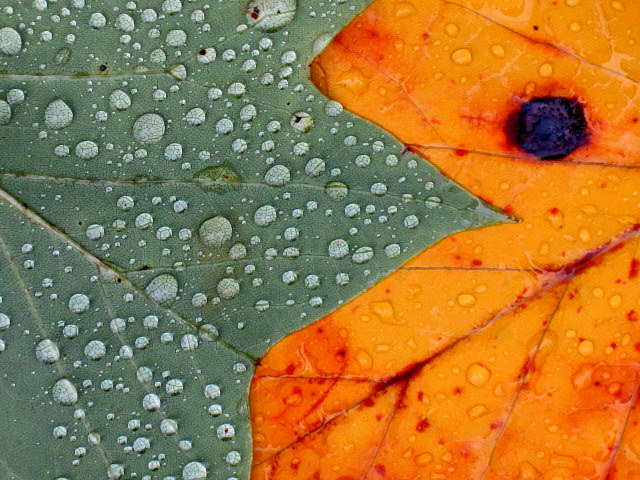
(artist credit: Karen A VandenBos)
Welcome
I wake to dark and welcome rain sluicing
off duck wings, then spilled into the swollen river.
I step outside where pungent earth
receives long March’s first washing.
Overhead, nests cling tightly,
perhaps waiting
for new inhabitants. The wet world seems to yearn
for meadowsweet, for warmth, for the return of orioles
and long-winged herons.
What defines spring hunger? I cannot say.
Perhaps we’re born to desire, to crave both tart and honeyed,
to eat at a table laden with spring morsels hinting of future abundance,
to thirst for another’s touch—our naked flesh pressed against
their waiting palms and tongue.
We covet those strokes even as raindrops caress,
as if to purify us, green us to bud, unfurl us
to some eventual sun.
Rosalie Sanara Petrouske received her M.A. in English and Writing from Northern Michigan University in Marquette, Michigan. She is a Professor in the English Department at Lansing Community College in Lansing, Michigan, where she currently teaches Freshman Composition and Creative writing classes. She has had poetry and essays published in many literary journals and anthologies including Passages North, The Seattle Review, Red Rock Review, Third Wednesday, American Nature Writing, and Lunch Ticket (at Antioch University in Los Angeles). In 2012, she won an Honorable Mention in the Abbie M. Copps Poetry Competition, an international poetry contest, for her poem “Burnt.” During National Poetry month, in April 2015, her poem “New Year’s Day” appeared in a broadside for the Michigan Poet. She has two books of poetry, both published with Finishing Line Press; the most recent, What We Keep, in 2016.
NIKOLAI SEBASTIAN
Circles
Nothing breathes
in this frost.
The soil is frozen.
Muscles knotted
the deeper our spade.
We speak hushed words
among roots, murmur litanies
into your dark belly.
Sunken, now.
A circle
of stones.
Some things
you swallow
without digesting:
A rock. A spade.
A pipeline
piece of shrapnel
pain.
But you are never
a mausoleum.
There are seeds
in the shed, bulbs,
lives unawakened.
When sun thaws
your skin,
we will mark
a circle
of seeds.
There will be
water,
warmth,
wind like
breath
of Kore.
Your body
will bloom
with her bones
in your veins –
the body of you both
will bloom
again.
Nikolai Sebastian is a recent college graduate living in rural upstate New York. His studies focused on art history and social theory. He has been writing since childhood, but only recently began submitting his work to literary journals, and has not been previously published.
JAN BOSMAN
Morning Cathedral
For a piece of bread, grandma said,
you can hear God singing.
So I toss out dry crusts,
sit in the dawn to wait for a song.
A robin’s whistle,
a lilting “cheerio, cheerio,”
rises and falls.
Finches, gold as sunflower petals,
phrase warbles and tweets.
From mockingbird throats,
notes pour like liquid:
improvisation with rhythm,
half notes and whole.
In a cathedral of sunlight and breeze,
a wren sends soprano squeals skyward;
a cardinal adds his slow trill.
From a choir of satisfied singers,
I hear a voice of God.
Poetry chose Jan Bosman to play on its team many years ago. She has been working to improve her skills ever since. Recently, someone said to her, “You’re a poet.” She paused and thought, Yes. Yes, I am. That was a magical moment. Jan Bosman lives in Woodstock, IL. Her work has been published in Midwest Review, Wisconsin Fellowship of Poets Calendar, On Wisconsin, and Voices.
JENNI GRIBBLE
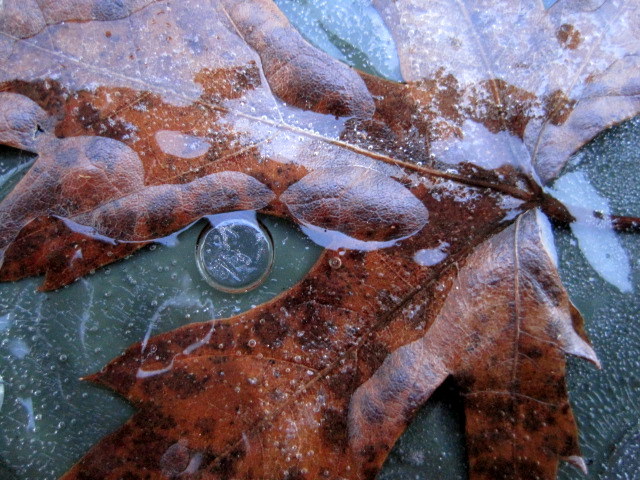
(artist credit: Karen A VandenBos)
The Well
In a dark and muddy field,
near a white house,
there is a well.
Do you see it?
It is beyond the open gate,
next to that bent, sad tree.
This hole in the earth once held water,
that shined in the dim light like a still pond.
but now it is an empty space.
Let’s lean over from above
and look inside.
Do you see it?
It sits on the bottom
in the soft, cold earth—
a scaly being—there.
In this empty space it molds our thoughts.
From formless wads of raw dark clay
it shapes them into empty vessels,
encrusted with smooth pebbles and glittering
threads of delicate sand.
And with the heat rising from the red heart
core of this cold planet, it fires them
into things of beauty and promise
in the quiet darkness.
Jenni Gribble’s poems have been published in several print and online publications, including Anima and the Kentucky State Poetry Society’s journal, Pegasus. When she is not teaching English or writing poetry, she likes to run long distances. She currently lives in Salado, Texas.
ROBERT LEE BREWER
by god
don’t remember her as the betrayal
but instead as the kiss that followed you
throughout that october between classes
& after school while the cool kids got hooked
on cheap beer & smokes as you on her couch
mastered unhooking her bra one-handed
without breaking that kiss that one pure act
against which you would judge unwittingly
all other women because it was more
than just tongues & saliva & warm flesh
but an open window to the future
who when you find her you’ll know she was sent
Robert Lee Brewer is a senior content editor with the Writer’s Digest Writing Community and author of Solving the World’s Problems (Press 53) and The Writer’s Digest Guide to Poetic Forms (Writer’s Digest). He edits the Poet’s Market and Writer’s Market books, has been voted Poet Laureate of the Blogosphere, and writes a poetry column for Writer’s Digest magazine. On social media, he can be found on Twitter @robertleebrewer.
DARREN C DEMAREE
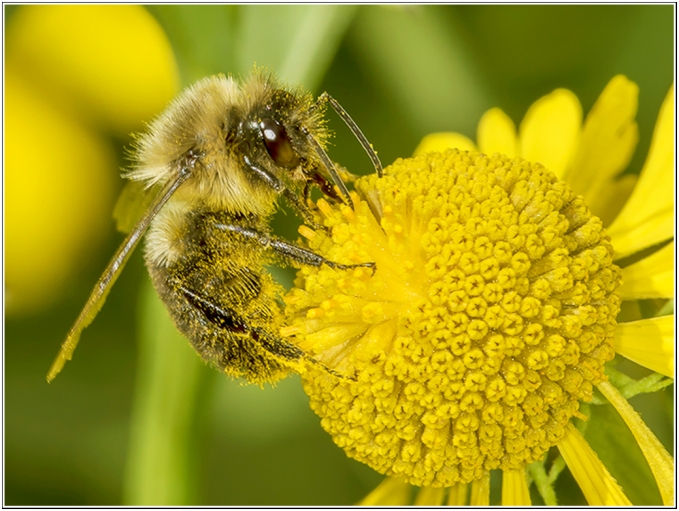
(artist credit: Kurt John Huebner)
Emily as She Begins to Look Like Joy Harjo
Three buttons undone
& hair wild enough
to taunt the local horses,
Emily has started to age
in a threateningly beautiful way
& each day when I am choked
by her next day’s look
I learn a little bit more about
what it’s like to lay in a field
that is all crop all of the time
& I learn a little bit more
about this new season
which has convinced me
to let the land go with Emily.
I have no need to sell
any part of this landscape.
Some day all of Ohio will be
made up of unrestrained Emily
& then, then, then
we will know the epic
has been fully formed.
Darren C Demaree’s poems have appeared, or are scheduled to appear, in numerous magazines/journals, including the South Dakota Review, Meridian, New Letters, Diagram, and the Colorado Review. He is the author of six poetry collections, most recently, Many Full Hands Applauding Inelegantly (8th House Publishing, 2016). He is the Managing Editor of the Best of the Net Anthology and Ovenbird Poetry. He is currently living and writing in Columbus, Ohio with his wife and children.
KATY PHILLIPS
Our Journey
I carried his ashes with care,
cradling them first
in official documentation,
then in a golf towel,
the black and red and yellow
of Port Rush far to the north,
but sharing with this place,
rain and wind and golden gorse.
And I traveled to the Beara Peninsula,
found the Kealinche River,
waters dark with peat and full of rain,
flowing from the mountains,
tumbling over the rocks
and through the heath to Clougah Bay.
Knowing I had followed his voice
to this place, I finally let him go,
watching the wind
catch the white cloud of him,
for just a moment, before laying
his ashes gently in the swirling water
moving swiftly to the sea.
Katy Phillips lives at Eastcastle, a senior residence on the east side of Milwaukee, two blocks from Lake Michigan. She and her husband, Jim, moved there three years ago. The move from Waukesha was the great adventure they both relished. Jim died in March of 2016, but Katy still loves the area, finding that the lake and walks in the neighborhood fuel her poetry … and life in general. At 81, Katy has no time to waste and is committed to living with great joy!
ALICE MILLS
Why
A student in lit class asks
why poetry is so depressing and
a pause falls in the class
as they wait for the usual
response; how the chains of mental disorder
rattle the haunted, consumptive poet or
that this is how art moves us; sniffs about
dumpsters in search of something real;
the hole in the sole of a shoe,
a lost face on the soured milk carton.
Instead, I ask him,
Aren’t you sad? Aren’t we all sad?
We drift through the deep in our little
silver bathyspheres
searching among the sea monsters
and coral forests for signs that loss is
somehow impermanent.
The derelict ships lie
quiet on the ocean bed.
They do not give up their dead.
And when we surface,
don’t we share the night sky,
the constellations our chandelier?
Those brilliant crystals!
These bright tears.
Alice Mills, a graduate of the University of California, Irvine MFA in English program, is most recently published in the 2 River View, The Icarus Anthology, and A Time of Singing anthology.
KEITH MACNIDER
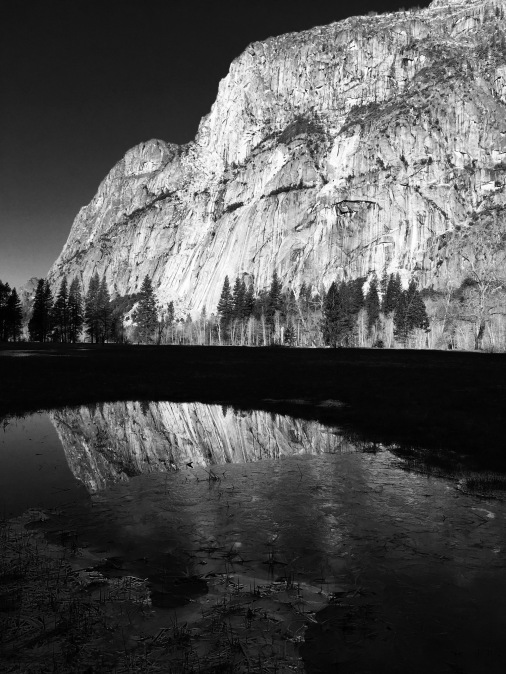
(artist credit: Devi S Laskar)
Edging Sighs
The water’s edge lip lapping sound
periodic urges that you can never quite
count or anticipate its dull smack
or sudden surge and jolt. Who is there
who sits when you open your mouth
like a gull squawking at the dawn
you missed yet which returns somewhere
in your bones and though all apart
you feel at home, breeze quilting the water
and you with your sighs, your sighs, your sighs.
Keith MacNider has been closely involved with Druidry since 1989. His work has been published in Australia, the UK, the US, and Canada. He lives in coastal South Australia where the Otherworldly presence is very strong.
PRERNA BAKSHI
Watching my father make paper boats
Back when I was a kid,
I loved visiting my aunt’s place.
I loved her old courtyard because
it was an area where rain water would accumulate.
It’s been several years since I last saw her
or my father again.
But, this trip was special.
It was a family get-together,
it rained hard that day
and heavy rain caused a power failure
as it usually does in India.
It’s 5 in the morning and it’s been 3 hours
since the power has been out.
The host, my father’s sister, out already
is joined by my father, while I
join them soon, half asleep, half wide awake.
All three of us, sitting in the courtyard
on this old manji, that’s even older than me.
It is then, when my father
almost 70, takes off
his chappals,
lifts up
his laacha,
wades into
the water-logged veda
and starts making a paper boat
so he could let it sail
into the rain puddle.
I never saw
that side of him before.
Somewhere on the road
to fatherhood,
there was a young boy
he had left behind.
He found that boy that day.
On that day, an adult refused
to play by the rules.
On that day, an ageing father
just wanted to
step out into the rain.
On that day, he just wanted to
make paper boats,
set them afloat in the water
and see
how far they would go.
Prerna Bakshi is a writer, poet and activist of Indian origin, currently based in Macao. She is a two-time Pushcart Prize nominee and the author of the recently released full-length poetry collection, Burnt Rotis, With Love, which was long-listed for the 2015 Erbacce – Press Poetry Award in the UK and cited as one of the 9 Poetry Collections That Will Change The Way You See The World by Bustle Magazine in the US. Her work has been published widely, most recently in Chiron Review, Up the Staircase Quarterly, HEArt Online, The Ofi Press, and TRIVIA: Voices of Feminism, as well as anthologized in several collections, most recently in A Shadow Map: An Anthology by Survivors of Sexual Assault (Civil Coping Mechanisms, 2017). She tweets at @bprerna. For more information: http://prernabakshi.strikingly.com/
JEANNIE E ROBERTS
How Healing Feels
Like a twig’s subtle shift
it rolls from thickening dimness
toward clarity
where surface coins scatter
toss silver chorus to air
while currents stir
quicken through cradles of fertile Earth
and cliffs rise
where ferns burgeon beneath ledges
soothe sharps smooth edges
lilt like a maiden’s hair sways
awakening from the drape of absence
to the turn of birdsong
and the swell of springtime’s budding
embrace.
Jeannie E Roberts has authored four poetry collections and one children’s book. Her most recent collection is The Wingspan of Things, a poetry chapbook (Dancing Girl Press, 2017). She is also the author of Romp and Ceremony, a full-length poetry collection (Finishing Line Press, 2017), Beyond Bulrush, a full-length poetry collection (Lit Fest Press, 2015), and Nature of it All, a poetry chapbook (Finishing Line Press, 2013). She is the author and illustrator of Let’s Make Faces!, a children’s book dedicated to her son (author-published, 2009). Her work appears in books, online magazines, print journals and anthologies, including A Year of Being Here, An Ariel Anthology, Bards Against Hunger, Blue Heron Review, Bramble, Festival of Language’s Festival Writer, Literary Mama, Misty Mountain Review, Portage Magazine, Quill and Parchment, Red Cedar Review, Silver Birch Press, Sky Island Journal, Verse-Virtual, Visual Verse, Volume One’s Local Lit, Yellow Chair Review, and elsewhere. Born in Minneapolis, she lives in an inspiring setting near Chippewa Falls, Wisconsin, where she writes, draws and paints, and often photographs her natural surroundings. To learn more, please visit her website at www.jrcreative.biz or her Instagram gallery at https://www.instagram.com/jeannie.roberts/ (@jeannie.roberts)
NICK HALE
Make Me Strong, Just Not Today
Today is for static,
for fifteen feet of snow.
Today is for cobwebs
in the attic
and for making grooves
in the couch
or wherever.
Oh God, please make me strong
just not today.
Life starts tomorrow.
For now, I’ll sell myself to apathy
for spoiled success
dispassionately indulge hobbies.
Don’t bother to call
or text or write or visit or—
Go away!
I don’t need you in my grayscale fever-dream.
I’m incognito
en-nihilo
embraced in isolation.
Help me heal, make me strong.
Give me power
to build and rebuild
re-rail.
Give me strength
make me strong,
but not today.
Nick Hale is a poet, best-selling editor and publisher with Local Gems Press.
TIMOTHY PETTET
A Comfort of Words
In the era of now-I-lay-me-down-to-sleep,
I cushioned my knees on a frayed, cotton rug,
rested my elbows on the blanket topping my bed,
laced the fingers of my clasped hands to form
a hearth for the warmth between my cupped palms.
A comfort of words drifted in
from my sisters’ room, Mother’s voice
coaching them to seek assurances of safety
in their slumber, teaching them to ask for blessings
on Daddy and Granny and all the others here and there.
They recited the names, and like a flute and piccolo
in a call and response duet, they saturated
the chambers of my heart with trills and flourishes,
feelings that still sing in the choir behind my eyes,
when, now, I sit me down to wake up.
Born under the northern lights on the shores of a lake in the heart of the Idaho mountains, Timothy Pettet began writing poems at 18 but did not seriously study the poetic craft, until he was well into his 40’s. His first book, Accidental Dancer, published during his 69th year, contains several poems that were refined in the crucible of performance with the music of the Kansas City, Missouri ensemble, Prometheus Unbound. Pettet has also performed with his wife, singer/songwriter and visual artist, Mary Pettet. Publication credits for Pettet’s poems include Mid-America Review of Poetry, Flint Hills Review, Coal City Review, KC Voices, The Same, The Kansas City Star, and the anthology Sacred Stones. You can experience some of Pettet’s work, with musical accompaniment and without, at timothypettet.com. Timothy and Mary live in Kansas City.
NEIL CREIGHTON
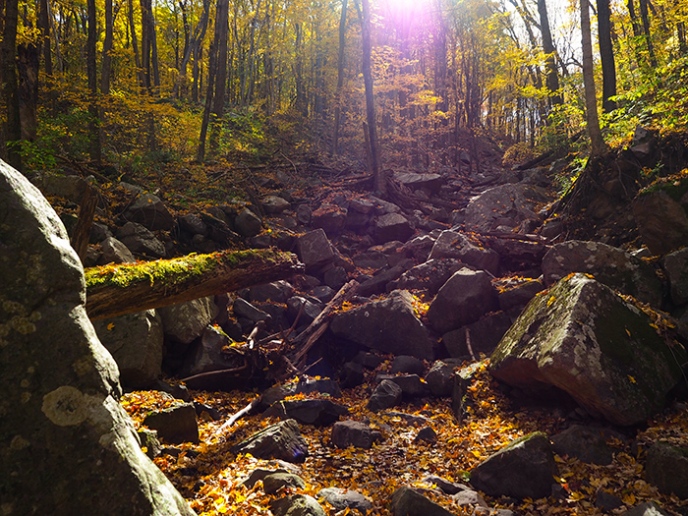
(artist credit: Bobbie Lee Lovell)
Visitation.
(For Diana)
Before dawn I felt a touch,
heard a soft voice whisper “Come,”
a pause and then that voice again,
“Your race you have now run.”
I shook my head, withdrew my hand,
I weakly whispered “No.
How can I leave this woman
Sitting quietly by the window?
“O Mr Death I cannot come!
Look on this vignette—
how morning’s growing light
softly frames her silhouette.
“She and I have things to do,
loving not yet completed.”
and I hear my own voice vow
“I will not by you be defeated.
“When you some other time return
I may merely follow,
say goodbye to this
quintessence of joy and sorrow.
But her soft touch makes
your cold grip fall away.”
Then weakly turning towards the light
I embrace again the coming day.
Neil Creighton’s work as a teacher of English and Drama brings him into close contact with thousands of young lives, most happy and triumphant but too many tragically filled with neglect. It also makes him intensely aware of how opportunity is so unequally proportioned and his work reflects strong interest in social justice. Recent publications include Poetry Quarterly, Poeming Pigeon, Silver Birch Press, Rat’s Ass Review, Praxis Magazine Online, Social Justice Poetry, and Verse Virtual. He blogs at windofflowers.blogspot.com.au
STEVE BUCHER
Lyra
Winter is a long night
Chill bleak stirred
By stars of equinox
Starlight caught
In needle webs of spruce
And hemlock
The lyre will not be stilled
In wintry weave
Nor strings held mute
In Orphic charm unsung
Hades bows
His hardened heart
In thrall of song
And lifting night
Do not look back
Do not look back
Fog and mist
Finesse the dawn
Dew glistens twig tips
April bare
Save one brown leaf
In steadfast hold
Through storm and longing night
Gives way at last
In while that walks
Enrapt
(Poem Note: Steve Bucher composed the poem “Lyra” as part of a months-long, ekphrastic project sponsored by the Poetry Society of Virginia in which eight pairs of local poets and artists collaborated to create poems and paintings around the theme “Springtime in Winter.” Upon completion, two local composers wrote music reflecting each paired collaboration, which was performed by high school students at each exhibit. Steve wrote his poem to a diptych painted by Pat Macintyre entitled “Night Pines.”)
Steve Bucher lives and writes poetry in the Virginia Piedmont. His poetry appears in the Blue Heron Review, the deLuge Journal, the Artemis Journal, the California Quarterly, NoVa Bards, Calliope Magazine, the Smoky Blue Literary and Arts Magazine, and will appear in the summer 2017 issue of Glass: Facets of Poetry.
ETHEL MORTENSON DAVIS
Wings
There is a part of me
that walks and talks and sees,
but then there is
another one
that has parts of wings:
Wings that take me
to the highest green cliff,
then drops me to the sea
to catch a ride on the back
of the dragonfly
as he crosses the land —
wings
that take me
to the farthest planet,
the red one,
then pulls me
back to the forest
where green moss
clings to the north side
of trees
in winter’s cascade
of blue shadows on snow
and sparkling sun.
Ethel Mortenson Davis was born in Wisconsin where her parents were dairy farmers. Her years on the farm instilled a deep sense of the earth. She studied fine art at the University of Wisconsin—Madison and has had three books published, The Healer, I Sleep Between the Moons of New Mexico, and White Ermine Across Her Shoulders. Her poems have appeared in magazines, anthologies, and small literary journals. Her pastels have been featured in a number of small galleries and publications. She lives in Sturgeon Bay, Wisconsin. She also writes a personal blog with her husband at www.fourwindowspress.com
KAREN WARINSKY
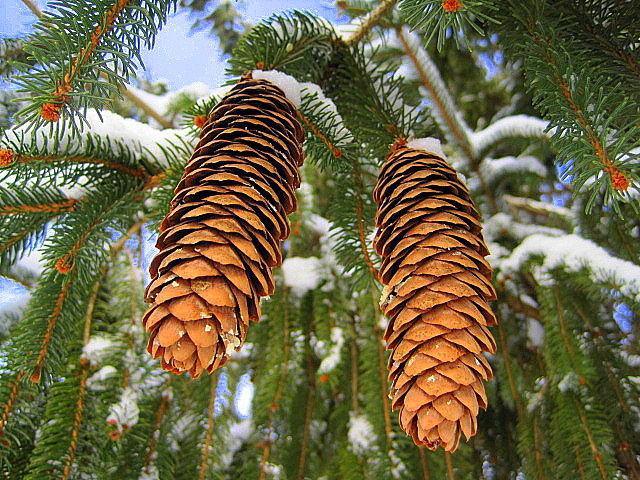
(artist credit: Karen A VandenBos)
Lawn Chair
Life from a lawn chair can be lived in full.
Listen! Birds are speaking.
They don’t mind if you try to crack the code.
Sun and cloud pass overhead.
Acknowledge them from your lowly, prone position,
or not,
for they are moving on, no matter what you do.
Rest. Rest.
Let the cats come circle the chair,
lie beside you.
Feel all the bits of rebirth poking through the crunched detritus of winter,
green babies forcing life back into all; buds, shoots, stalks.
See parachute puffs of seeds drift toward tender spots to land and grow.
They fly all around you in your chair, and you fly, too,
race to other times, other places, other springs,
when the humid warmth, the breeze,
the deep scent of fields filled your senses, and you lived
as Spring,
running free, shoes off, hair wild behind you,
living as sky, as earth, as wind.
Karen Warinsky was a finalist in the 2013 Montreal International Poetry Contest and a semi-finalist in 2011. The top 50 poems were published in an anthology by Véhicule Press. Her published work includes a memoir about her grandmother in the book, Dear Nana, edited by Robyn M. McGee, and the recent release, Nuclear Impact: Broken Atoms in Our Hands, edited by Teresa Mei Chuc. This anthology is the first of its kind on modern day warfare and nuclear incidents, consisting of poems from 163 international poets. Warinsky’s poems “History Lesson” and “Hiroshima Shadow” are featured. Mrs. Warinsky teaches high school English in Massachusetts.
FAYE ADAMS
A Hole in the Sky
At one’s passing,
shocked silence descends.
Only whispers are heard
in the petrified silence
surrounding hateful plans.
Only after the dreaded
ceremonies fade do we hear
how he joked, enjoyed life.
How he loved lemon pie,
took us to Pegg’s for Pizza.
How he patched, sanded
painted, shined those cars
standing in our driveways
or parked in our garages.
How he willingly breathed
noxious fumes which later
robbed him of breath.
My Pontiac Bonneville,
poised now to roll over
the 100,000 mile mark,
still drives like a dream.
Faye Adams is a freelance writer who has published three poetry chapbooks, and four hardback books: a children’s book, a book of poetry, and three books of poetry and nonfiction. She also writes essays, short fiction, and memoirs. Faye has won awards for poetry, fiction, and nonfiction. She has been published in local newspapers, magazines, poetry journals, and anthologies. Faye was the featured poet at the Lucidity Poetry Retreat in Eureka Springs, Arkansas in 2009, and she was one of three featured poets in the Lucidity Poetry Journal in 2011. Faye won the Senior Poet Laureate of Missouri Award in 2010, and again in 2012. She has helped conduct poetry workshops in classrooms and for writing groups. Faye served as co-editor of the MSPS Annual Anthology of Poetry and Nonfiction published by the De Soto chapter, On the Edge, 2003 through 2012. She attended Missouri Baptist University, and Meramec Community College.
MARYANN HURTT
Born Again
(for Lea—1990)
let loose
from my body, your body
a rag of tissue
your metallic reek
blood
I love you
under the bur oak
you become
part of everything
three deer in the east
stand vigil
you’re safe now
a snow quilt
covers you
December is forever
come spring
you are the phlox
exquisite purple
listen now
a redtail sings you
Retired after thirty years of hospice nursing, Maryann Hurtt still finds herself defining and redefining healing and hope. She lives down the road from the Ice Age Trail and revels in sandhill cranes, pussy willows, and first bluebird sightings. Aldrich Press published River this past year—her chapbook celebrating resiliency in the face of dying.
MARY JO BALISTRERI
Gratitude
(a double etheree)
I’ve
been told
the best way
to heal deep wounds
is to walk on paths
of forgiveness; to feel
our weight absorbed by an earth
that gives us back our measure, that
encourages letting go with each
step, leaving behind regrets and grudges.
Back in our bodies, we notice leg strength,
the pull of gravity on our thighs.
We feel the earth enfolding us,
gratitude rising, and joy
spilling over the top.
Suddenly alive,
we notice a fern
unfurl, redwings
in the marsh,
the day
new.
Mary Jo Balistreri has two books of poetry published by Bellowing Ark
Press and a chapbook by Tiger’s Eye Press. A third book of poetry is
looking for a publisher. She is also a member of the haiku community and spends many healing hours trying to write Japanese forms. Mary Jo is a founding member of Grace River Poets, an outreach for schools, churches, and women’s shelters. She is widely published and has several poems set to music. Please visit her at maryjobalistreripoet.com
MARY C ROWIN
Centering
(Framing used to support an arch or dome while it is under construction.)
To balance like a dancer on her toes,
a butterfly on top of a bridge rail.
Or a tightrope walker stretching a slippered foot
pole in hand shifting slightly left to right.
To find the center where weight is even
from front to back, three-sixty all around.
To helicopter like a hummingbird
or pose on a fence like a cat at night.
To have the center strip in mind when landing,
wheels ready, wings keeping body steady.
Staying in balance is easier
than regaining the midpoint when it’s lost.
It is not a moment but a way of life.
Two hands cupping one wildly beating heart.
Mary C Rowin’s poems have appeared recently in Portage Magazine, Panoply, Bramble (the literary magazine of the Wisconsin Fellowship of Poets), and in you are here, The Journal of Creative Geography. Mary lives with her husband and their seventeen-year-old cat Rio in Middleton, Wisconsin. She is a docent at the Chazen Museum of Art at UW-Madison and tutors English as a Second Language.
KRISTINA MULLENIX
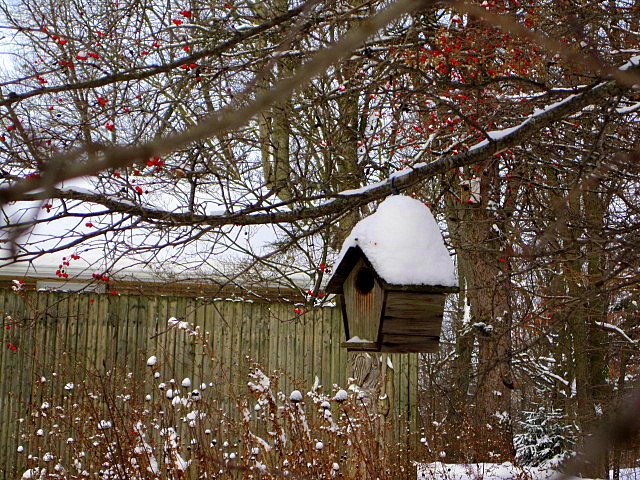
(artist credit: Karen A VandenBos)
Home Song
In the quiet stillness, life beats
with steady measure.
Counting days, minutes, and hours.
Pouring frustration
but gathering calm
in the apron of home.
Fire in the hearth and gentle tune,
cup of life
sing along to the song
that dances
within.
Kristina Mullenix grew up in Alabama, traipsing through cemeteries and hunting around the local archives with her parents in search of dead ancestors. Surrounded by so many stories, particularly those of her grandfather bard, she of course began to write her own—all beneath the giant oak trees shading her from the hot Southern sun. Later, she ventured north and obtained a B.A. in History from Mount Mary University in 2004. She is a freelance editor with Juniper Creek Editing & Literary Services. Kristina writes poetry, and enjoys traveling, reading, and exploring museums.
VICTORIA LINDSAY
Ancient Secret
A Chinese fortune cookie delivered
the message, Healing flows with
those in motion.
Motion…from here to there,
from this word to the next,
from handshake to long glance
to kiss.
Motion…
I remembered Joe.
ALS took his steps,
his keystrokes,
his swallow…
Time for a feeding tube.
It took his words…
He made loud sounds;
scared a neighbor kid.
It took away his breath.
Two years in, our Joe was
forty-five; ALS took his life.
Motion…
It’s been three years.
My husband, on ham radio,
listens, learns, laughs.
Together, we ride
country roads;
let the sun warm our faces,
the wind perk us up,
the sweet smells soften our hearts.
With a gentle group, we meditate.
I’m cooking more…savoring bites.
I plant gardens of flowers and
trellis words.
We walk, mainly on smooth planes
but we’ll try hills, soon.
Healing flows.
Victoria Lindsay lives in Weston, Wisconsin, where she teaches adult writers at the University of Wisconsin–Marathon County. A former writer/storyteller/puppeteer/professional clown in schools, libraries and on stage, Lindsay has experienced the power of the spoken word. Lindsay’s recent publication credits for children and adults: 2017 Wisconsin Poets’ Calendar, Mush Literary Magazine, Art that Blooms, Check a Box art exhibit at UW-Green Bay, International Crane Foundation; 2016 An Ariel Anthology, Words and Other Wild Things, Art that Blooms, Mush Literary Magazine, Wisconsin Poets’ Calendar. In addition to being a poet, Lindsay is an award-winning journalist and a writer in all genres. Her science fiction play for children, featuring Pulitzer Prize Winner Zona Gale as a character, was staged in 2013. Lindsay enjoys leading workshops and retreats. Her poem was written in appreciation for the unique Joseph C. Lindsay III (1969-2014) and his wonderful father, Joe.
ERIKA GOODRICH
Little Elegy (One Year After Your Funeral)
Under a north Umbrian sky, I think of you.
Your body
now ash,— buried
beneath the banyan tree
in our garden. Greening
like tea leaves, in the Spring-soft light.
Even now—, as the sun slants along the edge
of the azure horizon. And dusk’s dusty silhouettes
disappear. And stars suture the night shut—
All I want, is to feel
your fingers, untangling
my wind-blown hair. To hear
you whisper in my ear:
Come home, Darling—,
I am here.
Erika Goodrich’s work has appeared recently in The Pinch Journal, These Fragile Lilacs Literary Journal, The Mindful Word Journal, The Creativity Webzine, amongst others. She holds a BA in Creative Writing & Literature from William Paterson University and an MLS from CUNY Buffalo. She is also affiliated with the University of South Florida’s Creative Writing program.
ANNE ANTHONY
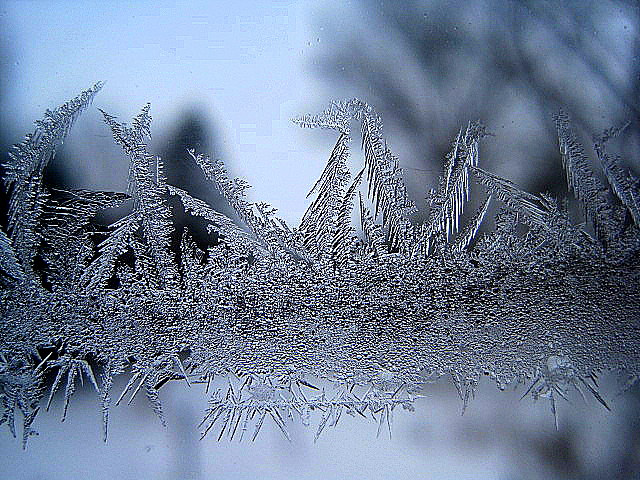
(artist credit: Karen A VandenBos)
She Wants
She wants a tattoo
of the moon where
birds in flight break
from its edge.
She wants a tattoo
across the inside
of her right wrist,
not her left.
She wants birds
to flap upwards
towards her elbow,
a ledge giving rest.
She wants a tattoo.
She wants to celebrate
commemorate
obliterate
the thin white line
hidden in plain sight.
She wants to forgive
her impulsive younger self.
The girl, the child, the engraver
of this ancient carving.
She wants to release
the unforgotten.
Let memories fly
from her wrist
up her arm
past her elbow.
Out of sight.
Anne Anthony is a graduate of Carnegie Mellon University where she earned a Masters in Professional Writing. Her prose and poetry have been published in Poetry South, Easy Street, Literary Orphans, Postcard Prose and Poetry Magazine, Firewords Quarterly, Crack the Spine, and other literary journals. She was selected as the Gold Writer in the ArtAscent Art & Literature Journal’s September 2016 issue for her poem, “High Horse.” Her flash fiction, “Bathroom Break,” placed third in Brilliant Flash Fiction’s themed contest—In The Aftermath. Two of her short stories have been selected for inclusion in two upcoming anthologies scheduled for a 2017 publication. She most recently read her personal essay, “In My Bones,” at the 2017 Raleigh-Durham Listen to My Mother farewell performance. She lives and writes in North Carolina.
EILEEN MATTMANN
Keepsakes
I gave someone a quilt I made
which she folded away with love
in a drawer to use on special occasions
the gold earrings my husband chose
thinking I would love them
almost as much as I loved him I’d
wear when the day deserved them
sacrilege to casually use mementos
meant to bring you to mind
in the passing of the urgent day
tucked safely away
my grandmother’s covered casserole
a woman I never knew who loved
the boy who was my father
I want to fill it with mashed potatoes
think of her presiding over her table
the only trace I have of her hands
that touched his face
Eileen Mattmann’s poetry has appeared in Red Cedar Review, Kindness Anthology II, An Ariel Anthology (2016), Zoetic Press, Blue Heron Review, the Wisconsin Fellowship of Poets’ Museletter, the Wisconsin Fellowship of Poets’ Calendar, BoomerLitMag, and Portage Magazine. She began writing after a long teaching career.
MARK DANOWSKY
Restlessness in Water
(in memory of S.B.)
Walking the dog I see his clay gray face
in the backseat of a Cadillac Deville
just sitting there, waiting to go
*
Tell me why we take shortcuts
**
The story goes…
asked if his poem “After Apple Picking” was about death
Frost replied, I know how to spell death—
d-e-a-t-h
***
Faced with famine
Russians ate glue off the backs of wallpaper
****
In fourth grade a classmate was chastised for always asking What if questions
He fell prey to The Desk Fairy
which meant you’d come in one morning and
surprise! the teacher had flipped your desk upside down
for all to see
*****
S.B. met with me at the college Writing Center
where I was little help to him
no matter how much thanks and praise he gave
A reminder why we do not speak ill of the dead
especially if their mischief was inconsequential
especially in hindsight
******
After I learn of his death, I once again consider the possibility of heaven
What if each of us had a closed-circuit TV
tuned to the lives of loved ones still living out their earthen days?
The trick would be to get a schedule down
so you could be there in spirit for all those events
you once declared death could not keep you from missing
Mark Danowsky’s poetry has appeared in About Place, Cordite, Right Hand Pointing, Shot Glass Journal, Subprimal, Third Wednesday, and elsewhere. Mark is originally from Philadelphia, but lives in West Virginia. He is Managing Editor for the Schuylkill Valley Journal and Founder of the poetry coaching and editing service VRS CRFT.
DIANA RANDOLPH
The Sound of the Hummers
The vibrating wings
of the ruby-throated hummingbird
zip, zip, zip
through our summer garden—a comforting sound similar to
the humming of my friend, Linda—
hum, hum, hum,
while she’s waiting in line,
washing dishes or flying down snowy slopes on skis.
I tell her how much I enjoy hearing her hum.
She laughs, saying how it annoys her younger sister.
I’m astounded—such a relaxed, content sound similar to
the mantra of meditating monks—
Om, Om, Om,
the sacred sound of Hinduism, said to mean,
“It Is, Will Be or To Become.”
I’ve also read about how that particular vibration
helps one to be in “entrainment” with the vast universe.
The dictionary says,
“Entrain—to draw along with or alter oneself.”
and “to draw in and transport by the flow of fluid.”
So now, when under stress or filled with impatience
I deliberately hum, savoring that sound,
hoping to be fluid, flowing through life without effort,
aligning with every single moment.
Diana Randolph (Drummond, WI) enjoys living in the midst of Chequamegon-Nicolet National Forest in Northwest Wisconsin. She’s a member of Wisconsin Fellowship of Poets and has had her poetry published in numerous publications including The Red Cedar Review, Thunderbird Review, and Wisconsin Poets’ Calendar. Savage Press published her chapbook, In the Heart of the Forest (1999) and her full-length book, Beacons of the Earth and Sky (2012). Both books contain color images of her oil and pastel paintings. For more information, please visit www.dianarandolph.com.
NANCY JEAN LARSON
Medicine Walk
(for Cousin Judy)
1.
We came here rocking in the holds of ships
our singing souls forbidden
our poetry, our Sami joiks, buried at sea.
Ship lousy, she pauses at the door—this shack in the cutover
—this girl to become our Bestemor, grandmother.
He runs to her, this boy to become our grandfather,
still carries the black braid
she cut and gave for his crossing, two years past.
Words catch on the sea of stumps, trees already taken.
Bestemor whacks the hoe
shades her eyes, a dust trail blooming up the road.
She reaches for her granddaughter
holds her face, laughs her name
Yoodith from Milwaukeeee
They share no other language.
2.
Judith sweeps her hair in a black twist
pins on the nurse’s cap,
loads books, the children.
The station wagon sags all the way
to the antelope West.
Judith molds to Lakota land, Arapahoe land,
comfortable as clear water.
She touches prayers in living things,
in rocks, tawny horizons folding into sky.
Friends gift her their designs—
roses bead to arcs; a leaf curves its own path.
Her children grown, her hair twists white.
She comes to lead the hospital,
turns many healing wheels.
3.
Judith gives our family beadwork from her walk.
She wraps us in her smile, in her crimson dancing shawl,
black fringe flowing through each low lilt and pause.
She bought it long ago
when piecing out the threads of who we are.
An elder takes her hands to heartbeat drums:
Understand the whispered music, the genetic chords.
She feels rough hands of Bestemor, and those from yet before.
Our hearts, our faces broad as tundra snow.
Nancy Jean Larson recently retired from a long career in natural resources. Her other love is writing. Having dabbled for years, she is excited now to be able to focus energy on poetry and historical fiction. Nancy is deeply rooted in the upper Midwest. Her great grandparents emigrated from northern Norway in the 1880s and she feels the history of her family and other groups in the landscape of northern Wisconsin. Her family roots are probably Sami (the indigenous people of northern Scandinavia), although it was not talked about in the family. The Sami experience shares some elements with Native American history in North America, but with less violence. The efforts to stamp out the culture were not entirely successful and many Sami descendants in North America now recognize the clues to their history. Nancy lives in Marengo, Wisconsin near Lake Superior.
KAI COGGIN
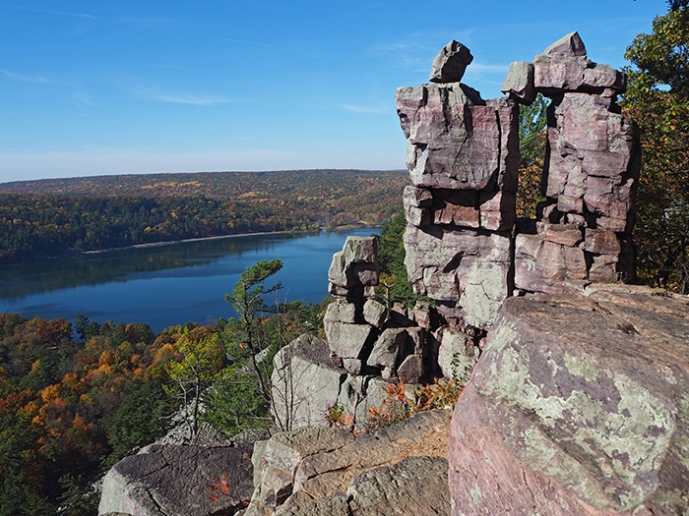
(artist credit: Bobbie Lee Lovell)
On Being Naked
I remember
the first night
my body was introduced
to the night air,
wind blowing through
a ninth-story loft window
and my skin
was there,
my fat
and muscle
and goosebumps,
my timid and stoic shoulders,
my arching back and folded arms,
my tense calves and
amazon thighs,
mouth agape,
eyes reflecting skyline,
hair moving with breeze,
somewhere, a moon.
I was always in armor, invisible now.
I carried more than the robes that I was dealt, heavy.
My body
usually
uninvited
to the dance,
to the table,
to the dream,
but this night,
after she loved me,
I came
dressed in a new cloak
called flesh,
and the wind blew
the sound of my name.
Kai Coggin is a former Teacher of the Year turned poet and author, living on the side of a small mountain in Hot Springs National Park, AR. She holds a BA in Poetry and Creative Writing from Texas A & M University, and writes poems on love, spiritual striving, body image, injustice, metaphysics, and beauty. Her work has been published or is forthcoming in Assaracus, Blue Heron Review, Lavender Review, Broad!, The Tattooed Buddha, Split This Rock, Yellow Chair Review, SunStruck Magazine, Drunk Monkeys, Snapdragon, Women’s Spiritual Poetry, Elephant Journal, and many other literary journals and anthologies. Kai is the author of two full-length collections, Periscope Heart (Swimming with Elephants Publications, 2014) and Wingspan (Golden Dragonfly Press, 2016). She just released her spoken word album debut, Silouette, in March 2017. Her poetry has been nominated twice for The Pushcart Prize, as well as Bettering American Poetry 2015, and Best of the Net 2016. She teaches an adult creative writing class called Words & Wine, and is also a Teaching Artist with the Arkansas Arts Council and Arkansas Learning Through the Arts, specializing in bringing poetry and creative writing to youth. Learn more about this author at: www.kaicoggin.com
COLLEEN JUNE GLATZEL
Opening and Closing
This is why I’m never bored,
and it’s a story that I think, I believe,
begins in the backyard of a suburban home—
with one story and ramps for the motor scooter
I was always jealous I couldn’t ride.
I was four or five.
Had an imaginary friend.
My mother always thought it was a ghost.
I pitched a tennis ball to the air and it landed in green grass.
I felt, not heard, a voice vibrate the words,
“There are people you must be with now.”
I saw air
and green grass.
This is my first memory.
I think, I believe.
He didn’t stop moving all at once.
Like most things in life, it started in his hands.
I wasn’t there for the beginning—
for the most unnerving hand jive ever,
and he didn’t stop moving all at once.
He didn’t stop moving,
not even after his jiving hands jerked his car
into a restaurant window.
My mother once told him that one finger
was ‘yes’ and two meant the opposite.
His quaking middle finger went up.
Other than his gnarled middle finger,
he couldn’t talk much, so I didn’t either.
I don’t know. I think, I believe the muteness
came from the warped sense of solidarity
that only a child could muster.
No, I know, I fear, it came from hospital curtains—
opening and closing, closing and opening.
I once walked in
on family members changing his pee bag.
I didn’t know whether to look at his stolid face
or the bag that was full of my favorite color.
And so I sat next to him
on his green velvet blanket
whenever I could,
but children aren’t designed
to sit for long,
even if the blanket
feels like home.
One day,
I went to the doorway
of his bedroom and said,
“Can we go now? I’m bored.”
I scanned the room.
My entire family was there and I realized
he was dying.
This is not my first memory,
but it’s the first time I remember,
I think, I believe, no, I know
that guilt hung heavy in my throat.
Airways closing and opening,
opening and closing.
I am never bored
because I don’t get to be bored.
I’m teeming with yellow light,
yellow brighter than his piss bag.
and movement, movement
that doesn’t stop all at once,
doesn’t stop at all.
Colleen June Glatzel is a writer based out of Waukesha, WI. Her debut novel was recently accepted by Rogue Phoenix Press and she is currently at work on a second book. She belongs to AllWriters’ Workplace and Workshop, a group of people connecting via the written word. When she’s not writing, Colleen paints, performs theatre, and sells antiques.
PAULA SCHULZ
Grief
(for Mandy)
Think of it as the old photo booth
of your childhood where you entered fully
into blackness, waited for it to be over,
trying to think of what your face should do.
Remember that after, you stepped from darkness,
held those moments on the black and white photo
strip in your hands, keeping the pictures
as you moved fully into the sunlight
that hurt your eyes, then into the traffic
stream of people moving purposefully
through their lives. You made yourself join them
till your thoughts were no longer only
images of grief.
Bumping down the path I begin to think with the mind of Braque
The world is jagged and jumpy and often
brown: water skimming over rock like fingers
of the blind. River-churn, color of hor-
hound candy: this thrash of river slaloming
over stone lively as any fountain
in Italy. Weed and water scents
anchor me while the industry of river
fills a place just behind sternum and staves.
Can heart follow earth’s arpeggios?
These rapids could be deep cello turmoil,
these boulders the holy city of sorrow
I am just now beginning to see beyond.
Paula Schulz has poetry in Bramble and has taken the 30 poems in 30 days challenge for the month of April.
JACQUELINE MARTINDALE
To Vivian
(a year after the stillbirth of her brother)
A fledgling bird, a perfect yellow,
nestled in the warmth of my hand,
had flown into the window—
it shook off its daze
coming to its senses,
flew off a stranger.
You rest in my arms,
your open eyes don’t know me yet,
your mouth knows to suckle, cannot speak,
but you squirm
when troubled by a tweak in your stomach—
the urgent need to take in, take in.
You are a language I cannot yet decode.
Vulnerability has a new definition,
more than the mystery of a dazed bird.
I am a whisper away from panic when you cry
even when you are fed.
My rocking you
moves away my worries
and you sleep, eyes twitching
still dealing with living
yawning and sighing
to catch a breath
to stretch into your growing,
and interpreting your symbols and signs,
I stretch to read your being,
safe in my arms,
you will not fly—
not like the babe born too early,
you are the balm that heals.
Jacqueline Martindale is currently the Wisconsin coordinator of Poetry Out Loud, a national recitation contest supported by the NEA and the Wisconsin Arts Board. A former high school English teacher at Lodi, WI, she is now semi-retired, enjoying writing poetry, art, drawing, and painting. She is working on her first chapbook combining both. A grandmother of two, she lives in Sun Prairie.
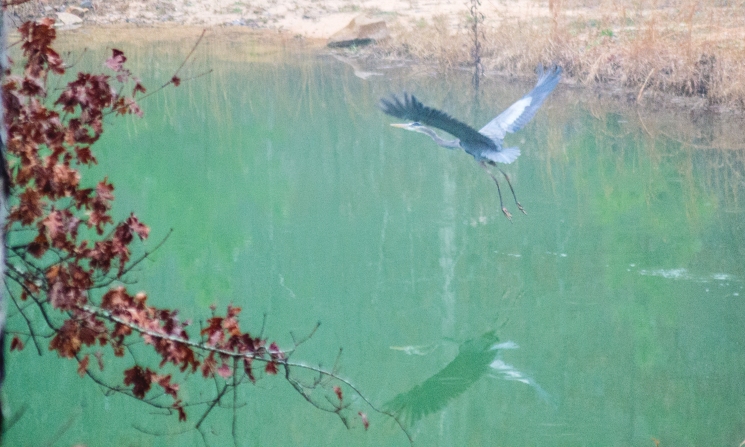
(artist credit: Kai Coggin)
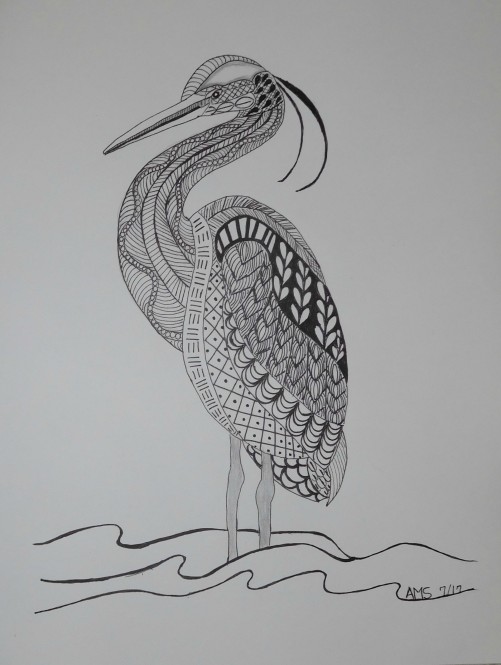
(artist credit: Anna May Shaffer)
ARTIST BIOGRAPHIES
DAVID SETH SMITH (Cover artist) ~ David Seth Smith is a poet, photographer and digital artist. He is a resident writer, contributor and editor at BlogNostics.net.
KURT JOHN HUEBNER ~ Kurt John Huebner is an amateur photographer who lives in the Mukwonago area of SE Wisconsin along with his supportive poet and author wife, Susan. A lifelong love of nature, and science in general, evolved into a strong photographic interest in close-up and macrophotography. He is very interested in the dragonflies and damselflies of Wisconsin and is making an effort to study and photograph as many species as possible—65 species to date. Hunting dragonflies also allows him to come into contact with, and image: butterflies, insects, wildflowers, birds and animals, and the occasional landscape. Being in the woods, meadows, streams, lakes, and marshes seems to compliment his introversion and settles his ever-curious brain to a calm focus. He states he prefers nature photography because, “The bugs don’t complain about how they look in an image.”
JEANNIE E ROBERTS ~ Jeannie E Roberts has worked as a freelance photographer, coaching, styling, and photographing commercial talent, capturing looks and poses for their head shots, portfolios, and composite cards. For her creative businesses, she has photographed her drawings and paintings, crochet wear, and jewelry designs. And not so long ago, she worked as a professional photographer, photographing babies, children, young adults, and families for a portrait studio. Today, Jeannie’s focus is mainly scenic photography, photographing nature through the seasons, as well as capturing the shapes, textures, and natural design elements found outdoors. Her photos appear in online journals, magazines, and print anthologies, including An Ariel Anthology, Blue Heron Review, Midwestern Gothic, Off the Coast, Portage Magazine, Presence, Quill and Parchment, Wisconsin Fellowship of Poets’ Bramble Literary Magazine and elsewhere. To learn more, please visit her website at www.jrcreative.biz or her Instagram gallery at https://www.instagram.com/jeannie.roberts/ (@jeannie.roberts)
KAREN A VANDENBOS (Featured Photographer) ~ From the time she read her first story book as a young girl, to her high school years of being active in journalism and editor of the student writing & art magazine Tabard, Karen A VandenBos has always known she has the heart of a creative spirit. Being a seeker by nature, Karen’s curiosity led her to explore many interests. Some let her follow her muse, like having a few of her poems published locally, while others steered her way off course. In 2008, Karen completed a PhD in Holistic Health. One of the courses was about Shamanism which influenced her to write her dissertation on the healing power of nature and the importance of finding one’s totem animal(s). Just three years ago, photography connected Karen to her spiritual path. While she has always dabbled in photography, this time taking photos has become her passion. It is nature that speaks to her heart and Karen’s photographs showcase this connection.
DEVI S LASKAR ~ Devi S Laskar’s poetry has appeared or is forthcoming from such journals as the The Atlanta Review, Carve, Dogwood, and The Raleigh Review, which nominated her for Best New Poets 2016. Her second chapbook, Anastasia Maps, was recently published by Finishing Line Press (2017). She lives in California.
BOBBIE LEE LOVELL ~ Bobbie Lee Lovell is a Wisconsin poet and photographer. She’s an alumnus of the UW–Green Bay’s art department and has a career in graphic design and print production. Bobbie is the author of Proposition at the Walk-In Infinity Chamber (Finishing Line Press, 2017) and the owner of well-worn trail shoes. More at bobbieleelovell.com.
KAI COGGIN ~ Kai Coggin is a former Teacher of the Year turned poet and author, living on the side of a small mountain in Hot Springs National Park, AR. She holds a BA in Poetry and Creative Writing from Texas A & M University, and writes poems on love, spiritual striving, body image, injustice, metaphysics, and beauty. Her work has been published or is forthcoming in Assaracus, Blue Heron Review, Lavender Review, Broad!, The Tattooed Buddha, Split This Rock, Yellow Chair Review, SunStruck Magazine, Drunk Monkeys, Snapdragon, Women’s Spiritual Poetry, Elephant Journal, and many other literary journals and anthologies. Kai is the author of two full-length collections, Periscope Heart (Swimming with Elephants Publications, 2014) and Wingspan (Golden Dragonfly Press, 2016). She just released her spoken word album debut, Silouette, in March 2017. Her poetry has been nominated twice for The Pushcart Prize, as well as Bettering American Poetry 2015, and Best of the Net 2016. She teaches an adult creative writing class called Words & Wine, and is also a Teaching Artist with the Arkansas Arts Council and Arkansas Learning Through the Arts, specializing in bringing poetry and creative writing to youth. Learn more about this author at: www.kaicoggin.com
ANNA MAY SHAFFER ~ Anna May Shaffer loves to do craft work and has done so all of her life. She has tried many different types of crafts. She now lives in a retirement village where they have classes of different types of art and other crafts. In early 2014, she decided to try a new art form, called Zentangle. She started the classes and enjoyed them. She found Zentangle to be a very relaxing form of art. You can Zentangle almost any kind of subject: animal, plant, scenery, seasonal themes, letters. Zentangled art can be done in many types of designs and patterns. Several people may do the same picture, but each person’s picture will look different, because of the shapes and patterns they use and how they place them. Anna May’s favorite subjects are animals, birds, and different types of nature. She Zentangles just for the joy of doing it and sometimes gives her Zentangled pictures to friends as gifts. There are many books published about Zentangle art. It was originally started by Rick Roberts and Maria Thomas.
Copyright © 2018 Blue Heron Review ALL RIGHTS RESERVED
(Blue Heron Review holds first publication rights of poems. All original rights go back to individual authors/artists.)